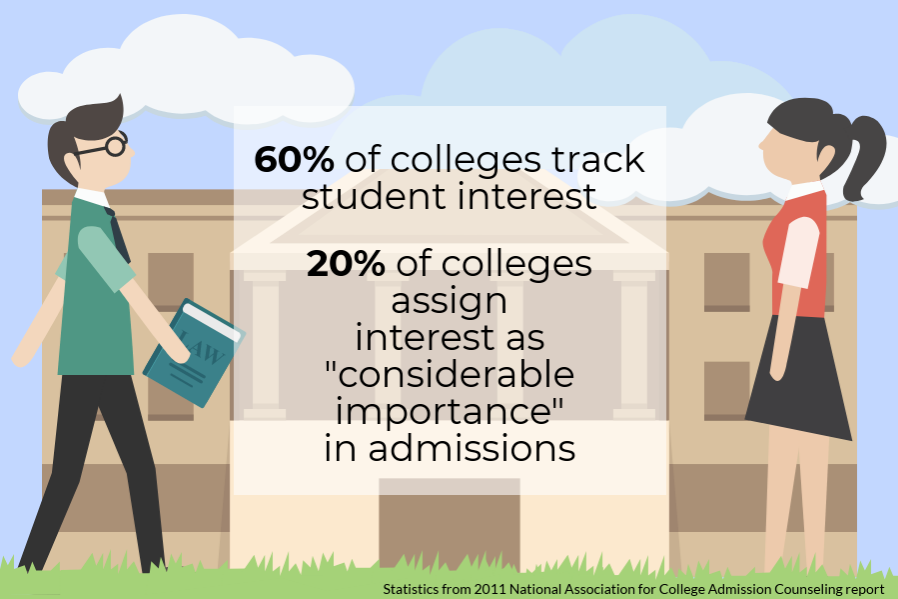Demonstrated Interest is... exactly what it sounds like. It is a college's way of gauging a student's level of avidity for attending an institution. This avidity is usually measured in activities that are beyond the regular application process. This is where the applicant can distinguish themselves from other applicants.
The Common Application and relaxed application rules have made the college application process much simpler than before, so it's not uncommon for students to simply submit as many applications as they wish , because it doesn't require much effort. So, to circumvent this and identify applicants with a keen interest in enrolment, college admissions committees all over the world have developed methods of determining the likelihood of a student accepting an admissions offer.
Similarly, the most competitive students have created strategies to let colleges know that they are super interested (...with the goal of appearing to be more interested than any other applicant). We're going to break down some of those strategies below.
GET INTEGRATED
This involves becoming familiar with the school. You do this by participating in campus tours and informational sessions, as well as subscribing to the school's newsletters. Is your dream college going to be at a local college fair? Make sure you attend, introduce yourself to the admissions counsellor on site and ask questions... then sign up on their interest form.
Colleges put a lot of effort and money into delivering institution-specific campus education to potential applicants. Showing up to these events provides you with a chance to get to know staff members and possibly other students in hopes of you becoming a student in the near future. Subscribing to the campus newsletter gives the impression of a desire to become knowledgable of the school's culture and social environment.
Another great way of doing this (if you have the resources to do so) is by booking and attending a campus tour - bonus points if you can attend one while school is still in session. This shows schools that you're interested in seeing student life and learning as much as you can about a school in real time, before actually attending.
GET IN TOUCH
Make yourself visible to the admissions committee by contacting your dedicated admissions rep. Who is your admissions rep? This is where some research skills comes in! A quick Google search of "[name of school] admissions committee" should get the job started.
Whether in a face to face or virtual interaction, a college admission rep knowing your name is a very good way to demonstrate your interest and ensure there's someone advocating for you during admissions deliberations.
TAKE ADVANTAGE OF THE EA/ED ROUND
Applying in the Early Action (EA) / Early Decision (ED) round indicates to a university that you are eager and willing to be among the first to be processed for admission. This option is perfect for applicants who are confident about their college of choice and its financial aid systems.
Of course utilising this method has its complexities. So be sure to refer to our article on
EA/ED Applications to determine whether or not this the best option for you in demonstrating your interest.
IF IT'S OPTIONAL... DO IT
As a rule of thumb, when demonstrating interest, if it's optional... do it.
Schools may have optional town halls, forums and even optional additional essay questions. This is a big indicator of interest. So if you want to let a college know you're interested write the optional essays and participate in as many optional activities as you can.
And, if you're given the option to do an interview? Do it. Interviews provide an opportunity for students to make an early impression on an institution. The interview process allows for face to face meeting with a school representative who would be left with a first hand impression of the applicant. Applicants can use this moment to shine a light on their soft skills. Make sure to note your interviewers' names and credentials.


